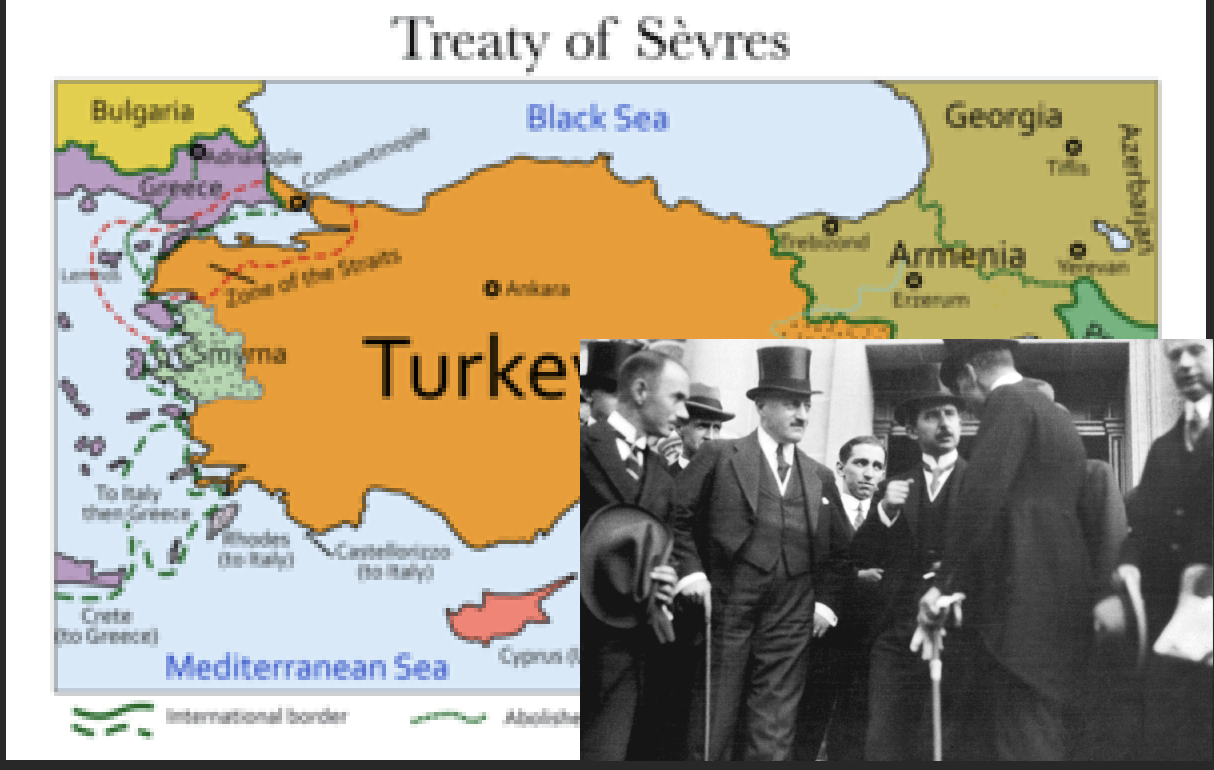What Happens With The Lausanne Treaty After it Expired?
The Treaty of Lausanne, signed in 1923 between Turkey and the Allied powers, played a crucial role in shaping the modern state of Turkey and ending the Ottoman Empire.

The Treaty of Lausanne, signed in 1923, was a peace treaty between Turkey and the Allied powers following World War I. Its main purpose was to establish peace, recognize the boundaries of modern Turkey, and dissolve the Ottoman Empire.
The treaty was signed on July 24, 1923, in Lausanne, Switzerland, after seven months of negotiations. It replaced the previous Treaty of Sèvres, which had imposed harsh terms on Turkey and was rejected by the Turkish National Movement led by Mustafa Kemal Atatürk.
The Treaty of Lausanne encompassed several key provisions. Firstly, Turkey renounced its claims to its former Arab provinces and acknowledged British possession of Cyprus and Italian possession of the Dodecanese. The Allied powers, in turn, dropped their demands for autonomy for Turkish Kurdistan and the transfer of territory to Armenia. They also abandoned their claims to spheres of influence in Turkey.
Turkish Straits
The treaty also addressed the status of the Turkish Straits, declaring them open to all shipping under an international commission. Additionally, it facilitated a large-scale population exchange between Greece and Turkey, based on religious affiliation, to prevent further ethnic conflicts.
The rights and protection of minorities in Turkey, including Greeks, Armenians, Jews, and Kurds, were guaranteed by the treaty. Moreover, the financial obligations of Turkey towards the Allies were settled, and a commission was established to oversee the payment of reparations.
However, it's important to note that some provisions of the Treaty of Lausanne have been challenged or violated by Turkey or other parties over the years. The treaty is set to expire in 2023, which could have significant implications for the region and the world.
Several possible scenarios have been suggested for what might happen after the treaty's expiration. These scenarios are not exhaustive or mutually exclusive. They are based on statements and actions from Turkish President Recep Tayyip Erdoğan and his ruling party, who have expressed neo-Ottoman ambitions and dissatisfaction with certain aspects of the Treaty of Lausanne.
The Treaty of Lausanne
However, these scenarios are subject to uncertainties, challenges, and geopolitical realities, making it difficult to predict the exact outcome. Some potential scenarios include:
1. Expansion of territories: Turkey might claim its former territories in the Middle East, such as Iraq, Syria, and Saudi Arabia, citing historical and religious ties. It could also assert its influence in the Balkans, where it has cultural and ethnic connections with some countries. This could potentially lead to conflicts with current governments and other regional powers such as Iran, Israel, Russia, and the European Union.
2. Control over strategic locations: Turkey could impose taxes or restrictions on the passage of ships through the Turkish Straits, affecting the trade and security interests of many countries, particularly those reliant on oil and gas from Russia and Central Asia. Turkey may also seek to control or exploit natural resources in disputed areas of the Aegean Sea and Eastern Mediterranean, leading to tensions with Greece and Cyprus.
3. Constitutional changes and withdrawal from international organizations: Turkey might revise its constitution and laws to reflect its Islamic identity and values, potentially impacting the rights and freedoms of secular and minority populations, including Kurds, Armenians, Alevis, and Christians. There could also be a possibility of Turkey withdrawing from international organizations and treaties, such as NATO, the Council of Europe, and the European Convention on Human Rights.
4. Economic expansion: Turkey could focus on expanding its economic capabilities to become a regional or global power. It may seek to increase trade and investment with emerging markets such as China, India, and Africa, aiming to reduce its dependence on Western allies.

Visit World Future for more foreign news and regional Asean stories
Turkey and Allied Powers
It is important to consider that these scenarios are based on certain narratives and statements but are not guaranteed outcomes. They depend on various factors, including domestic opposition, international pressure, economic constraints,
The Treaty of Lausanne, signed in 1923 between Turkey and the Allied powers, played a crucial role in shaping the modern state of Turkey and ending the Ottoman Empire.
While the treaty established important provisions, some of which have been challenged over the years, its expiration in 2023 could lead to significant implications for the region and the world.
Potential scenarios include territorial claims, control over strategic waterways, revisions to domestic policies, and economic expansion. However, the outcomes remain uncertain, influenced by domestic opposition, international pressures, and geopolitical realities.

